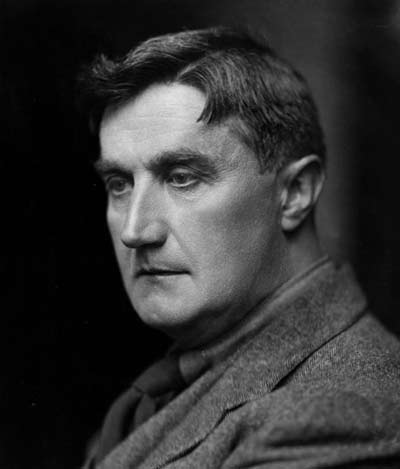Vaughan Williams, Ralph (1872–1958)

Ralph Vaughan-Williams
Ralph Vaughan Williams was one of a group of composers who contributed to the renaissance of English music in the 20th century. Born in Gloucestershire, he studied music at Cambridge University and the Royal College of Music, London, where his teachers included Parry and Stanford. (In later years, he also studied with Bruch and Ravel.) He began his career as a church organist in London and, with his friend Gustav Holst, initiated a systematic study and collection of English folk songs, which – together with his interest in Tudor music – profoundly influenced his own compositions.
In 1906 Vaughan Williams was appointed musical editor of The English Hymnal, for which he wrote some famous hymn tunes, such as "For All the Saints" (Sine nomine). He also became director of the amateur Leith Hill Music Festival in Dorking, Surrey, from 1905 until his death. From 1919 until 1939 he was a professor of composition at the Royal College of Music. He married twice, the first time in 1897; after his wife's death in 1951 he married the poet and librettist Ursula Wood.
Vaughan Williams' musical style has a distinctively "English" quality, derived from his use of the modality of folk song, tinged with an elusive mysticism. He was drawn to the mystical poetry of Walt Whitman, whose verses he set in A Sea Symphony (1903–1909) and Toward the Unknown Region (1905–1906). Other early works included the Fantasia on a Theme of Thomas Tallis for double string orchestra and the settings of poems by A. E. Housman, On Wenlock Edge (1908), for voice and string quartet, as well as the ever popular part-song "Linden Lea" (1901) and the Songs of Travel (1901–1904), based on Robert Louis Stevenson's poems.
Altogether Vaughan Williams wrote nine symphonies, including No. 2 (A London Symphony, 1912–1913), No. 3 (Pastoral, 1916–1921), No. 5 (1938–1943, which with the gritty No. 6 of 1944–1947 was perceived as the composer's response to war), and the Sinfonia antarctica (1949–1952, based on his score for the 1948 film Scott of the Antarctic). His orchestral music also includes The Lark Ascending (a rhapsody for violin and orchestra), concertos for violin, oboe and tuba, A Norfolk Rhapsody, the Fantasia on "Greensleeves" (1934) and the overture The Wasps (1909). Vaughan Williams wrote in many genres, including stage and film music. His six operas are relatively infrequently revived, but his ballet score Job: A Masque for Dancing has remained in the orchestral repertoire.


